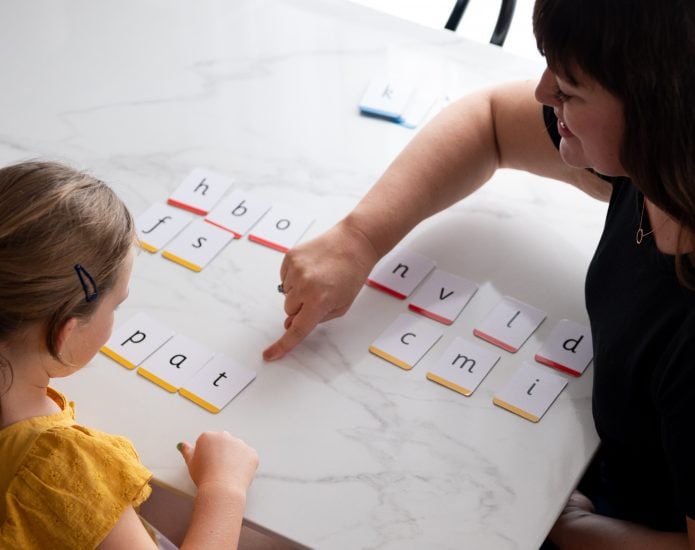It’s a normal part of a child’s emotional development to experience large shifts in their emotions and it is normal for children to feel down, be sensitive to criticism and express sudden outbursts of emotion such as anger or annoyance. As children develop, they become more aware of their emotions and learn to regulate them.
However, if these negative changes in mood persist for weeks or months, your child may be showing signs of depression and may need additional support to cope and manage their symptoms.
What is Depression?
Depression, formally known as Major Depressive Disorder, is a mood disorder characterised by persistent feelings of sadness, low mood and loss of interest or pleasure. Children with depression may present with emotional, physical and behavioural changes that interfere with their ability to participate in school, make friends and perform daily tasks.
Signs of Depression in Children
Children and young people can have difficulty expressing complex emotions, which can make the signs of depression difficult to spot. Challenging emotional and behavioural changes (in line with those listed below) that persist for several weeks may indicate that your child is experiencing depression.
Children with depression can express their feelings very differently at different life stages. Often, they might display a combination of psychological, physical and behavioural symptoms.
Signs of depression may include:
- Persistent feelings of sadness
- More easily agitated or upset
- Feeling hopeless or worthless
- Tearful
- Lack of interest or pleasure in activities they usually enjoy
- Significant changes in appetite such as under or overeating
- Disturbed sleep patterns such as under or oversleeping
- Poor concentration
- Loss of energy and motivation
- Avoidance of social situations
- Complains of stomach pains, headaches or muscle pains
- Negative self-talk
- Changes in performance at school
In some cases, children may experience intense feelings of depression that can put them at risk of having thoughts of self-harm or suicide, which can be incredibly distressing for parents as well as the child. There are a number of 24-hour professional support services available to contact when your child is experiencing emotional distress including Kids Helpline and Lifeline. If you feel that your child’s safety is at risk, it’s important to seek immediate professional help by calling 000.
Diagnosis and Treatment of Depression in Children
Depression is unlikely to go away on its own so if you have concerns about your child’s wellbeing, it’s important to seek help from a professional straight away. Children and adolescents are still developing their sense of self, so early intervention is important in helping prevent more severe depressive illness in later life.
If your child is displaying signs of depression, make an appointment with your GP to discuss their symptoms. A GP can rule out any other medical concerns and refer your child to a psychologist for further assessment.
A psychologist will perform a range of interviews and questionnaires to understand your child’s emotions and behaviours in a range of situations. Following assessment, the psychologist can determine whether your child is experiencing depression and develop a tailored strategy to support them.
Speaking with a psychologist or counsellor regularly can also help your child understand and manage their feelings. There are a number of therapies available to support children with depression, including cognitive behavioural therapy (CBT), play therapy and mindfulness.
If a child’s symptoms are severe and don’t improve with therapy, there are medication options available to help them cope. A psychiatrist will determine the best medication option to prescribe based on the needs of your child.
Helping Children with Depression
It’s crucial to seek professional help to support a child with depression. However, there are many ways parents can support children with their depression at home. For example:
- Spend dedicated time with your child to talk to them about how they’re feeling. This could be while cooking together or while driving somewhere
- If they aren’t opening up to you, encourage them to speak with another trusted adult
- Find an outdoor physical activity they enjoy doing, even if it is a low effort activity like going to the park or playing frisbee
- Maintain a consistent daily routine
- Look for apps and activities to help with relaxation and mindfulness
- Encourage your child to access youth mental health services such as Kids Help Line
- Look after your own health and wellbeing so you can best support your child
Financial Assistance for Children with Depression
Children with depression may be eligible to receive Medicare rebates for up to 10 sessions with a mental health professional through the Better Access to Mental Health Care initiative.
A mental health care plan from your GP or referral from a psychiatrist or paediatrician is required if seeking to claim Medicare rebates through the Better Access to Mental Health Care program.
How Learning Links Can Help
Learning Links is dedicated to supporting the mental health and wellbeing of children through our programs and resources.



